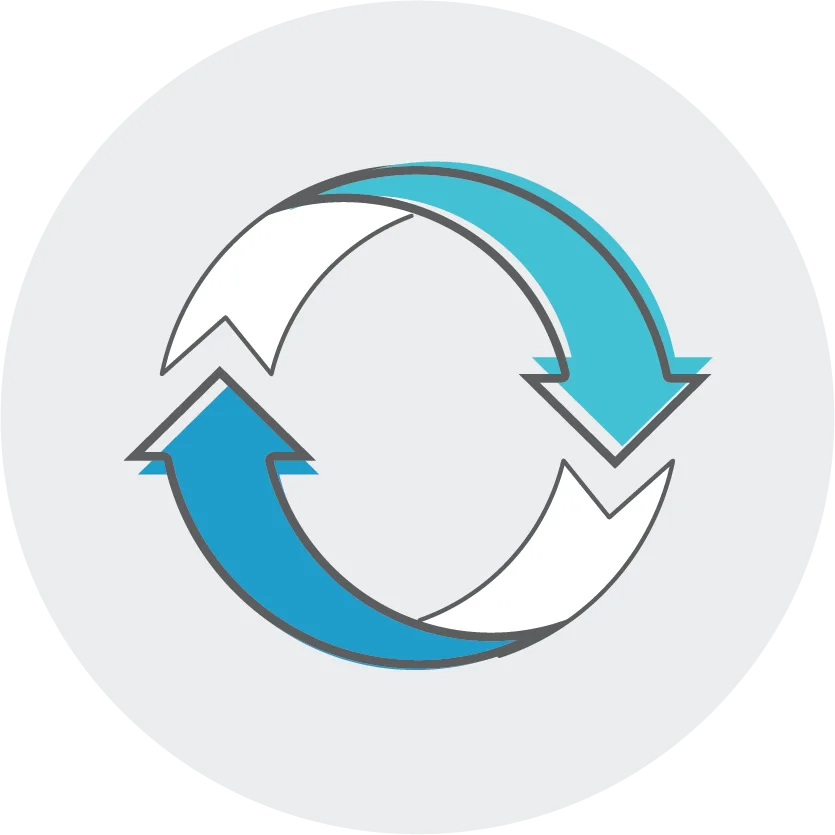If you are looking into renovating your home to increase its value, or you want to augment your source of retirement income, a home equity loan may be the right choice for you.
A home equity loan, also known as a second mortgage, allows homeowners to borrow against the equity in their home. Equity is the difference between your home’s current market value and the amount you still owe on your mortgage.
Borrowing funds for whatever purpose you need can be simpler and easier this way. But what are the steps you need to take? Starting with the basics of what a home equity loan is, how it works and how to apply for one, to what the home equity loan credit score minimum is to qualify, this blog can answer those burning questions you may have.
How Do Home Equity Loans Work?
A home equity loan provides a one-time lump sum payout, which borrowers repay in fixed monthly installments over a set term, similar to a primary mortgage. Unlike a home equity line of credit (HELOC), which functions like a revolving credit line with variable interest rates, a home equity loan offers predictable payments.
For example:
- Home Value: $300,000
- Mortgage Balance: $200,000
- Home Equity Available: $100,000
If your home’s value increases, so does your equity. If your home value rises to $350,000 and your mortgage balance remains at $200,000, your equity increases to $150,000.
Frequently Asked Questions
What Is a Home Equity Loan Used For?
People have varying purposes for taking advantage of a home equity loan. A home equity loan provides cash that can be used for various financial needs, including:
Home Renovations & Improvements
Increase property value while benefiting from potential tax deductions.
Using a home equity loan for renovations can be a smart investment, allowing homeowners to increase their property’s value while enhancing their living space. Whether it’s upgrading a kitchen, remodeling a bathroom, or adding an extension, these improvements can boost your home’s marketability and long-term worth. Unlike personal loans or credit cards, home equity loans offer lower interest rates and fixed monthly payments, making it easier to budget for large-scale projects.
A key advantage of financing home renovations with a home equity loan is the potential for tax-deductible interest payments, provided the funds are used to buy, build, or substantially improve the property securing the loan. This IRS guideline means that, when used appropriately, home equity loan interest may be deducted from taxable income, reducing overall tax liability. However, homeowners should consult a tax professional to ensure their expenses qualify and maximize potential savings.
Debt Consolidation
Pay off high-interest debt like credit cards at a lower fixed interest rate.
Home equity loans typically offer lower interest rates than credit cards and personal loans, making them a smart option for consolidating high-interest debt into a single, manageable payment. By using home equity to pay off outstanding balances, homeowners can reduce their monthly expenses, simplify their finances, and potentially improve their credit score by lowering their credit utilization.
However, because the loan is secured by your home, failing to make payments could put your property at risk. Homeowners should ensure they have a solid repayment plan in place and avoid accumulating new high-interest debt after consolidation. Used wisely, a home equity loan can be a powerful tool to regain financial stability and work toward a debt-free future.
Investments
Fund a business, invest in the stock market, or seize financial opportunities.
A home equity loan can provide the capital needed to start or expand a business, offering entrepreneurs a stable source of funding with predictable payments and lower interest rates than many traditional business loans. This can be especially beneficial for new business owners who may struggle to secure financing through conventional lenders. By tapping into home equity, borrowers can invest in equipment, inventory, or operational expenses without sacrificing excessive profits to high-interest debt.
Beyond business ventures, home equity loans can also be used to invest in the stock market or other financial opportunities, potentially leading to long-term financial growth. However, because investments carry inherent risks, borrowers should carefully evaluate their strategy to ensure potential returns outweigh the cost of the loan. When used wisely, leveraging home equity can be a strategic way to build wealth and diversify financial assets.
Retirement Supplement
Retirees can tap into their home’s equity to support their lifestyle.
For retirees, a home equity loan can provide an additional source of income to cover living expenses, medical bills, travel, or other financial needs without relying solely on savings or Social Security. After years of building equity, homeowners can leverage their property’s value to maintain their lifestyle and gain financial flexibility during retirement. Unlike credit cards or personal loans, a home equity loan offers fixed monthly payments and lower interest rates, making it a more stable and predictable borrowing option.
This type of loan can be especially useful for retirees who want to age in place by making home modifications for accessibility or covering unexpected costs. However, since a home equity loan is secured by the property, borrowers should ensure they have a solid repayment plan to avoid financial strain. Used strategically, tapping into home equity can help retirees preserve their savings while enjoying a comfortable retirement.
Emergency Expenses
Cover medical bills, wedding costs, college tuition, or other financial burdens.
Unexpected expenses can arise at any time, placing a significant strain on household finances. A home equity loan can provide a financial safety net, allowing homeowners to access cash for urgent needs like medical bills, wedding costs, or college tuition.
Because home equity loans typically offer lower interest rates than credit cards or personal loans, they can be a cost-effective way to manage large, unforeseen expenses without accumulating high-interest debt. However, as with any loan secured by your home, it’s essential to ensure that the repayment terms align with your financial situation to avoid unnecessary financial strain.
What Are the Benefits of a Home Equity Loan?
✔ Lower Interest Rates – Typically lower than credit cards and personal loans.
✔ Fixed Monthly Payments – Predictable payments with a fixed interest rate.
✔ Easier Qualifications – Homeowners can qualify with a credit score as low as 620.
✔ Higher Loan Limits – Borrow based on the equity you’ve built, rather than income alone.
A home equity loan offers several advantages for homeowners looking to access cash while maintaining financial stability. One of the biggest benefits is its lower interest rates compared to credit cards and personal loans, making it a cost-effective way to borrow. Additionally, with fixed monthly payments, homeowners can enjoy predictable budgeting, avoiding the uncertainty of fluctuating interest rates.
Another key advantage is easier qualification requirements. Unlike other types of loans that heavily rely on income, home equity loans primarily consider the equity built in your home, allowing homeowners with credit scores as low as 620 to qualify. Plus, with higher loan limits, borrowers can access larger sums of money based on their home’s value, making it a great option for major expenses like renovations, debt consolidation, or investments.
How Do I Qualify for a Home Equity Loan?
To qualify, lenders will assess:
✔ Home Equity – Most lenders require at least 20% equity in your home.
✔ Credit Score – Minimum of 620-640 (700+ is preferred for better rates).
✔ Debt-to-Income Ratio (DTI) – Ideally 43% or lower.
✔ Stable Income – Proof of consistent, verifiable income is required.
✔ Property Appraisal – Homes valued over $250,000 may require an updated appraisal.
Qualifying for a home equity loan requires meeting specific lender criteria to ensure you can comfortably repay the borrowed amount. The most important factor is your home equity, with most lenders requiring at least 20% ownership in your property. Additionally, a credit score of 620-640 is typically the minimum threshold, though a higher score (700+) can help secure better interest rates. Lenders will also review your debt-to-income ratio (DTI), ideally keeping it at 43% or lower, as well as proof of stable, verifiable income to assess your ability to manage monthly payments.
In some cases, an updated property appraisal may be required, especially for homes valued over $250,000, to determine your home’s current market value. The approval process usually takes 30-45 days, depending on factors like appraisals and required documentation. Understanding these qualifications in advance can help streamline your application and improve your chances of securing a home equity loan with favorable terms.
When Should I Consider a Home Equity Loan?
A home equity loan is ideal when:
✔ You need a lump sum of cash for home improvements, debt consolidation, or a major expense.
✔ Refinancing isn’t an option due to high interest rates.
✔ You want fixed, predictable payments rather than a fluctuating HELOC.
A home equity loan is a great option when you need a lump sum of cash for major expenses like home improvements, debt consolidation, or other large financial needs. Since this loan provides fixed monthly payments and a set interest rate, it offers stability compared to a home equity line of credit (HELOC), which has variable rates that can change over time. This predictability makes budgeting easier and helps borrowers avoid unexpected payment increases.
Homeowners may also consider a home equity loan if refinancing isn’t ideal due to high mortgage rates. Instead of adjusting your existing loan, a home equity loan allows you to borrow against your home’s equity without changing your current mortgage terms. This makes it a smart financial tool when market conditions make refinancing less favorable but you still need access to cash.
How Can I Calculate My Home Equity?
Subtract your mortgage balance from your home’s current market value.
You can use our multiple mortgage calculators to determine if you are financially ready and able to take on a second mortgage. Specifically, you may check how much you will pay monthly using our loan payment calculator.
What’s the Difference Between a Home Equity Loan and a HELOC?
- Home Equity Loan: Fixed amount, fixed rate, fixed payments.
- HELOC: Revolving credit, variable rates, flexible payments.
A home equity loan and a home equity line of credit (HELOC) both allow homeowners to borrow against their home’s equity, but they function differently. A home equity loan provides a lump sum with a fixed interest rate and predictable monthly payments, making it ideal for large, one-time expenses like renovations or debt consolidation. In contrast, a HELOC works like a revolving line of credit, allowing homeowners to withdraw funds as needed, with variable interest rates and flexible payments. This makes HELOCs a better fit for ongoing or unpredictable expenses, but they also come with the risk of rising interest rates over time.
Are There Risks to Taking a Home Equity Loan?
- Risk of Foreclosure – Your home is collateral; failure to make payments could result in foreclosure.
- Increased Debt Burden – Borrowing more than needed could lead to financial strain.
- Limited Flexibility – Unlike a HELOC, you receive a one-time lump sum, not a revolving credit line.
While a home equity loan offers financial advantages, it also comes with risks that homeowners should carefully consider. Since your home is used as collateral, missing payments could put you at risk of foreclosure, making it crucial to have a solid repayment plan. Additionally, borrowing more than necessary may increase your debt burden, potentially leading to financial strain. Unlike a HELOC, which offers a flexible credit line, a home equity loan provides a one-time lump sum, meaning you won’t have the ability to borrow additional funds without taking out a new loan. Understanding these risks can help you make an informed decision about whether a home equity loan is the right choice for your financial needs.
Get Started with a Home Equity Loan Today!
A home equity loan can be a powerful financial tool, offering homeowners a way to leverage the equity they’ve built in their property.
Whether you’re looking to renovate your home, consolidate debt, invest, or cover emergency expenses, this type of loan provides fixed payments and predictable terms to help you achieve your financial goals. With lower interest rates than credit cards and personal loans, it can be a cost-effective solution when used wisely.
Before applying, it’s important to assess your financial situation and ensure you meet the necessary qualifications, including sufficient home equity, a stable income, and a strong credit score.
At Mutual of Omaha Mortgage, we’re here to guide you through every step of the process. Our experts can help you explore your options, calculate potential loan payments, and provide the insights needed to make an informed decision.
Contact us today to learn more about home equity loans and take the next step toward achieving your financial goals!











